Earth
Sign up for our newsletter
We summarize the week's scientific breakthroughs every Thursday.
-
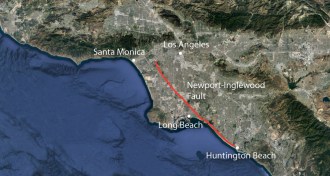 Earth
EarthSeismologists surprised by deep California quakes
Small earthquakes detected along the Newport-Inglewood Fault originate from deeper underground than once thought possible.
-
 Science & Society
Science & SocietySometimes failure is the springboard to success
Editor in chief Eva Emerson discusses scientific discoveries that resulted from failures large and small.
By Eva Emerson -
 Physics
PhysicsA metallic odyssey, what’s causing sunspots and more reader feedback
Metallic hydrogen, sunspot formation, salty desalination leftovers and more in reader feedback.
-
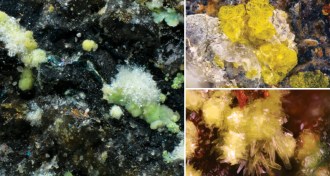 Planetary Science
Planetary ScienceRock hounds are on the hunt for new carbon minerals
The race is on to find about 140 predicted carbon-based minerals in locations around the world. Map included.
By Sid Perkins -
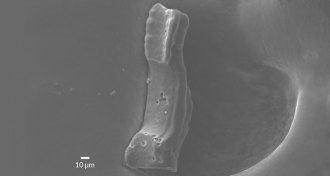 Earth
EarthGlass bits, charcoal hint at 56-million-year-old space rock impact
Glassy debris and the burnt remains of wildfires suggest that a large space rock hit Earth near the start of the Paleocene-Eocene Thermal Maximum warming event around 56 million years ago.
-
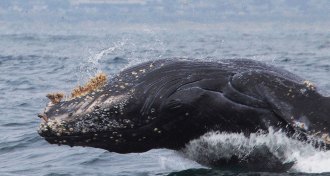 Animals
AnimalsBarnacles track whale migration
The mix of oxygen isotopes in the shells of barnacles that latch on to baleen whales may divulge how whale migration routes have changed over millions of years.
-
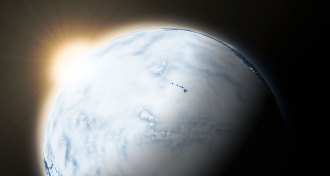 Climate
ClimateMethane didn’t warm ancient Earth, new simulations suggest
Scarce oxygen and abundant sulfate prevented methane from accumulating enough to keep Earth warm hundreds of millions of years ago, reviving the faint young sun paradox.
-
 Earth
EarthNuclear blasts, other human activity signal new epoch, group argues
A group of scientists will formally propose the human-defined Anthropocene as a new epoch in Earth’s geologic history within a few years, probably pegging the start date to nuclear tests.
-
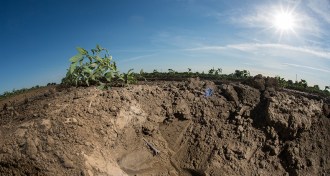 Earth
EarthNatural ally against global warming not as strong as thought
Soils may take in far less carbon by the end of the century than previously predicted, exacerbating climate change.
-
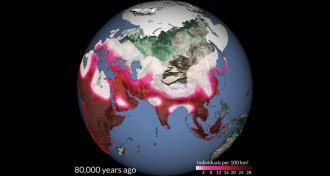 Genetics
GeneticsSingle exodus from Africa gave rise to today’s non-Africans
Genetics and climate studies differ on when modern humans left Africa.
-
 Oceans
OceansMelissa Omand’s clever tech follows the fate of ocean carbon
Drawn to the water early, oceanographer Melissa Omand now leads research cruises studying how carbon and nutrients move through the seas.
-
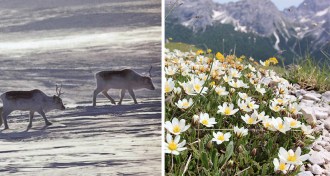 Ecosystems
EcosystemsShrinking sea ice threatens natural highways for caribou, plants
As Arctic sea ice declines, Peary caribou or plants risk getting stranded when their frozen highways thaw.
By Susan Milius